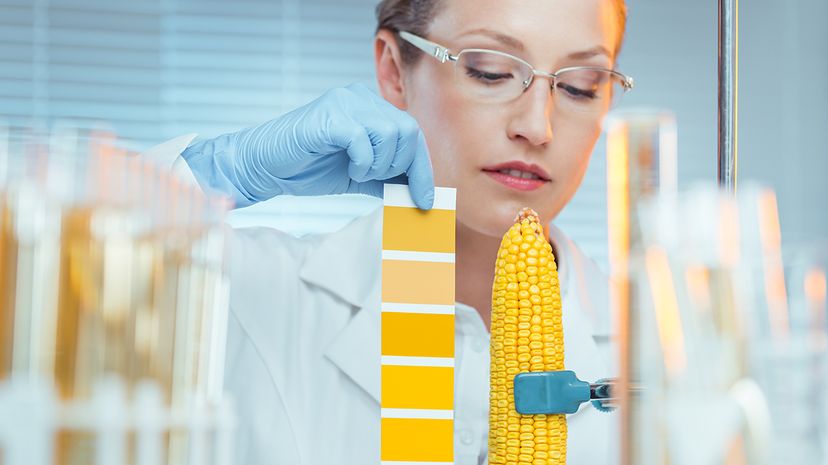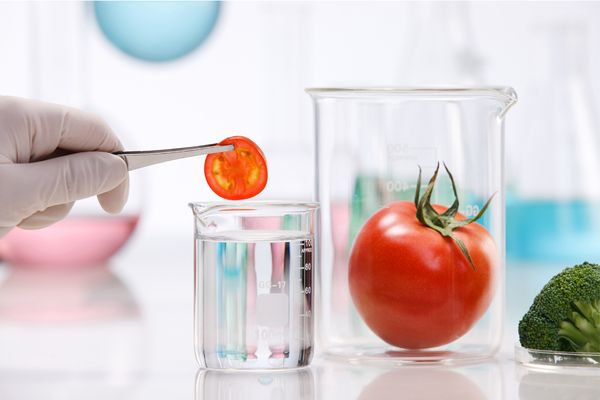
As long as humans have been mass-producing food, we've been adding preservatives into those foods as well. And not all of those additives are harmless to our health. In fact, it was growing concerns about what we were ingesting — and in what amounts — that eventually led to the formation of one of the largest American governmental agencies, the Food and Drug Administration.
But even with more intense scrutiny and regulations, shocking — and often disgusting — stuff still is allowed into our food every day. Scared yet? If you're not, you might be after this one. So grab a snack, if you dare, and join the guys from Stuff They Don't Want You To Know as Ben Bowlin, Noel Brown and Matt Frederick chew on the history of the FDA and our food system in the podcast Several Terrifying Things You Just Ate.
Advertisement
Before the 1906 Pure Food and Drug Act was signed by President Theodore Roosevelt, there were hardly any federal laws regarding the ingredients and labeling of foods and medicines in the U.S. State laws helped cover some big stuff, but people were still dying from legitimate poisons, like radium, borax and arsenic, which were found in everyday food and medicine.
The Pure Food and Drug Act led to the formation of the Food and Drug Administration, and it was all thanks to a scientist named Harvey Washington Wiley. He conducted studies with 12 male volunteers who agreed to straight-up poison themselves with toxic substances. Wiley game the men (he dubbed them his Poison Squad) higher and higher doses until they got sick, thus finding the threshold for how much poison our foods could contain before they start harming us. Wiley called these poisoned meals "hygienic table trials" and used the findings and a strong advocacy network to finally get federal regulations put in place.
Today, the Food and Drug Administration is a huge organization, monitoring around $1.5 trillion worth of medical products, food and tobacco; that equals about 20 cents of every single dollar spent by consumers in the United States. So naturally, it's subject to several conspiracy theories. In other words, some think the FDA doesn't regulate strictly enough, and others feel it regulates too much.
Case in point: Dietary supplements. They're not regulated by the FDA. Why not? Many believe that herbal remedies can cure diseases like cancer, but the FDA chooses not to approve them because the FDA is in bed with the pharmaceutical industry. The thinking is that the FDA is purposely railroading research into these supplements in order to force consumers into buying prescription drugs.
But others believe that logic is dangerous. And the fact that dietary supplements are allowed to flourish without FDA approval, has led to a lot of misleading pseudoscience.
But when it comes to food, there's still a surprising amount of gross — and, yes, poisonous — stuff that gets added to our food to this day. And that includes both domestic and imported foods that have greater regulation from the FDA.
For example, the whitening agent found in bread that is also used to make yoga mats? It's still common in the United States even though the World Health Organization linked it to increased risk of respiratory problems and skin irritation. And remember Olestra, that fat-free, cholesterol-free cooking oil replacement found in potato chips and frozen yogurt? It was supposed to be the best thing since sliced bread but instead it caused nasty digestive issues and was named one of Time magazine's Worst Inventions for 2010. It's still approved for use by the FDA.
Oh yeah, and artificial food colorings are found in tons of our foods, from salsa to soda to salmon. They were originally made from coal tar but today most synthetic food dyes are derived from petroleum, or crude oil. Doesn't sound like something you'd want to ingest does it? Currently the FDA still approves nine synthetic colors for food made of crude oil.
But that's not all. What about what our food ingests, like antibiotics and hormones given to cows, or arsenic in chicken feed? Does that have a detrimental effect on our health? After all, you are what you eat, right?
If you stopped munching on that snack you fixed when you first started reading this, we don't blame you. If not, then go ahead and listen to the entire podcast to see what else Matt, Ben and Noel have to say about what could be lurking in whatever you're eating.
Advertisement
